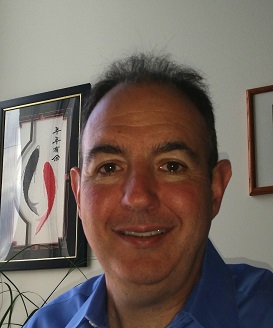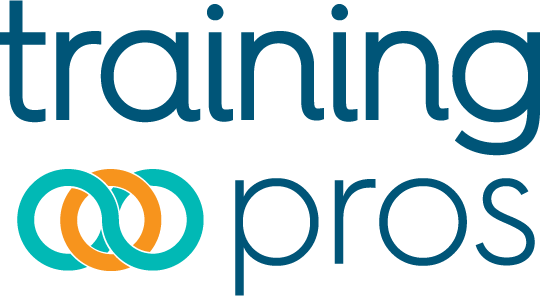Aaron DeMent
Director, Quality Assurance
Sterigenics
Aaron DeMent has been with Sterigenics for over 15 years and currently serves as Director of Quality Assurance for Sterigenics. In this capacity he oversees compliance to regulatory and quality standards for all Sterigenics EO sites globally. Prior to his current position, he has held a variety of positions including a GM, QA Manager, R&D Principal Sterilization Scientist, Sterilization Manager, Corporate Training Manager and QA/Sterilization Consultant. Aaron has over 20 years of experience in Medical Device, Pharmaceutical and Biologic Industries, much of it international. His primary experience is in sterilization where he has worked in all aspects of the business including QA, Operations, R&D and Distribution. Aaron has not only worked with Medical Devices but has worked on and developed sterilization methods using a variety of modalities for reusable, pharmaceutical, biologic and combination products.
Aaron will be one of the distinguished speakers at the 4th Semi-Annual Medical Device Supplier Quality: Efficiency and Collaboration Conference.
Why is the 4th Semi-Annual Medical Device Supplier Quality Conference important for quality executives?
This conference highlights the criticality of the supplier quality process in a world where outsourcing is becoming more and more the norm. The material covered in the conference serves as a solid reminder of how much there really is to outsourcing, and provides useful examples many of the tools needed to develop a strong supplier quality program. Aside from the formal material in the course, it is also affords the opportunity to speak to peers and learn how others are approaching similar challenges.
What initiatives are on the horizon for your team in 2016-2017?
As a supplier we tend to focus on things we believe our customers can use to make their own lives more efficient. Key among these initiatives is trying to go as paper free as possible in our interactions. Currently, we are substantially streamlining our quality release activities. We are also developing much more formal “on-boarding” methods to assist customers as they bring new products to market, particularly in more challenging areas like pharmaceutical or combination products.
In what ways have you made collaboration with suppliers a reality?
As a supplier ourselves we focus on trying to facilitate ongoing communication, not only on a day to day basis to ensure production needs are addressed, but also on a more formal basis with ongoing meetings. With the customers we deal with on a reasonably high volume basis, formal business reviews are conducted. For smaller customers, aside from sales and on a site level, we have had different paradigms but where possible assigning a specific person as the routine process contact for the customer has been useful.
What internal departments do you feel are important to be included for holistic/cross-functional supplier quality?
I think when developing a strong supplier quality process nearly all departments must be included.
- R&D & Engineering to understand production/process capabilities and limitations and start to start early in developing a quality supplier base.
- Production to ensure that when scale up occurs the process can be repeated and blended into other production activities as seamlessly as possible.
- Packaging to guarantee that components/intermediates as well as final product can withstand the rigors or transportation and sterilization as required.
- Logistics to handle the transport of materials from location to location – there should be a global strategy in this regard as suppliers and manufacturing sites tend to be far flung these days.
- Distribution to ensure that when all is done, they are comfortable with the flow of product and the release mechanisms that allow them to feed their inventory.
- Environmental, Health and Safety to ensure that materials are handled in a safe and environmentally responsible manner. This can be particularly challenging when dealing with hazardous products or certain processes that may off-gas or leach manufacturing materials or sterilants.
- Quality every step of the way to make sure things are being done in a compliant manner.
- Similar to quality, finance should be aware of the costs of all of the above, to ensure as early as possible that the dreams and desires of all of the above departments allow for a reasonable production cost and guarantee a responsible return on the investment in the product.
What are some of the benefits you’ve experienced with involving suppliers in early product development stages?
As a supplier we find immense benefit in our medical customers involving us early in the product development stages. For our business, things like material compatibility, product/packaging configuration and manufacturing environments are key to success. If the customer does not understand the limitations of our process when they design their product, they may be very discouraged by the constraints they encounter as they move into routine production.
Does your organization have a PPAP in place?
If so, what are some of the challenges and opportunities with a PPAP? We do not use this process as we have an extremely limited and constrained supply base. Many of our supplier are very long term and are either single, or perhaps at best dual sourced. That said, our supplier program is going through a bit of a reformatting and this is something we may consider going forward.
What is one thing you hope to learn or discuss with your peers at the Supplier Quality Conference?
As a supplier I see this as a great opportunity to discuss the needs of suppliers with the quality and purchasing personnel that may be attending this conference. As we are a medical company working in a niche market, much of the documentation that we receive is designed in template form that simply does not fit our business model. Some companies are very reticent to break from their “template” and it is important to get companies to understand that from a legal and quality perspective, we simply will not sign up for things that are ambiguous or do not fit our interactions. In the end, I would like to encourage flexibility.





